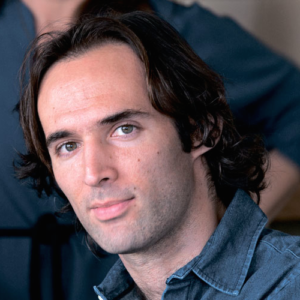Inspiring interdisciplinary pivots in science and engineering research for recently-tenured professors
For professors, achieving tenure should be a moment of freedom, allowing them to innovate and test new research paths. Unfortunately, this moment is too often coupled with a lack of alternative resources and pressure to continue producing research within their established portfolios.
The SpaceOne Science Polymath program aims to encourage the best “polymath” scientists to expand their research portfolios by making a substantive, interdisciplinary pivot after achieving tenure. This is an experiment in extreme curiosity-driven innovation, and one we’re willing to bet leads to unexpected discoveries for decades to come.
The Polymath program will make long-term bets on recently-tenured professors with remarkable track records, promising futures, and a desire to explore interdisciplinary research. Each professor will be awarded $500,000 per year, paid through their institution, for up to five years to help support a research group through talent, such as three to four students or postdocs, and resources. These grants are intended to make possible the exploration of new ideas across disciplines, using emerging technologies to test risky theories that may not otherwise receive funding or support. They are not intended to relieve the researcher of pursuing other grants to continue their mainstream work, nor to be large enough to fully support a modern lab.
Read more about two of the SpaceOne Science Polymaths and their work below.
SpaceOne Science Polymaths


Oded Rechavi
Dr. Oded Rechavi is a Professor of Neurobiology in the George S. Wise Faculty of Life Sciences, Sagol School of Neuroscience at Tel Aviv University where he seeks to challenge fundamental long-held scientific dogmas. Prof. Rechavi’s primary research has focused on transgenerational inheritance and evolution where he introduced a paradigm shift in the field of inheritance by identifying small RNAs that are generated in response to stress and are transmitted to subsequent generations. Outside of transgenerational biology, Dr. Rechavi has pioneered several new areas of interdisciplinary research. His work on the Dead Sea Scrolls used genome sequencing to help identify sources and to piece together tiny fragments of the scrolls by analyzing ancient DNA obtained from the animal skin parchment they were written on. His work on neuroeconomics uncovered neuronal mechanisms that underlie irrational decision making.
Jeff Gore
Dr. Jeff Gore is an Associate Professor of Physics at the Massachusetts Institute of Technology where he uses his background in physics to gain critical insights into important biological questions. Dr. Gore uses quantitative thinking and a variety of tools from areas such as game theory, statistical physics, and behavioral ecology to solve problems in different fields. His research has moved from physics-based analysis of behavior of single biological molecules to research that elucidates behaviors in biological populations using a physicist’s taste for precise experiments and a biologist’s interest in real-world complexity. Dr. Gore’s lab is composed of an interdisciplinary group of scientists interested in collaboration that effectively combines experiments, theory, and modeling.